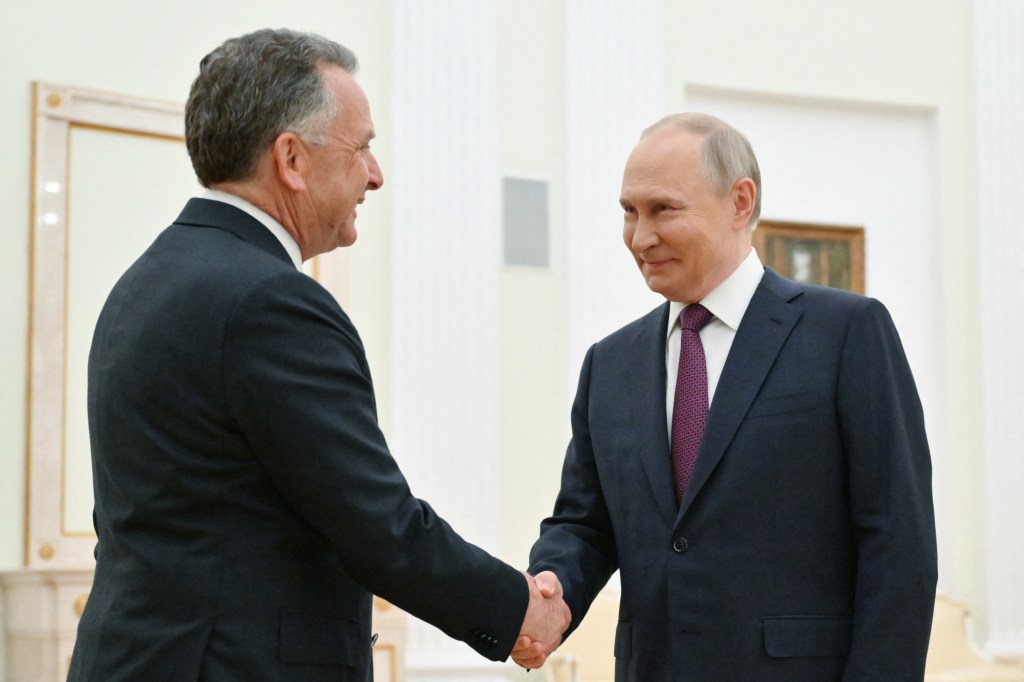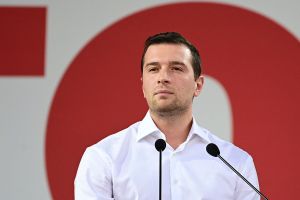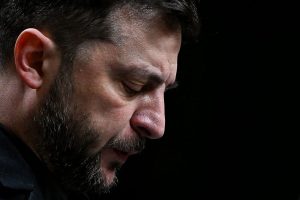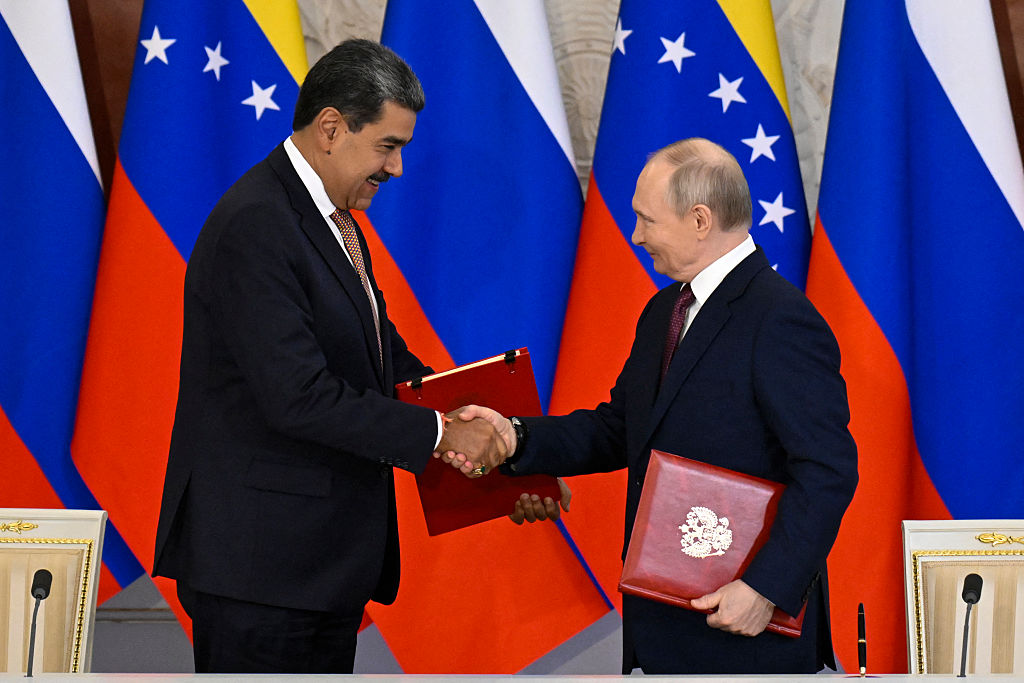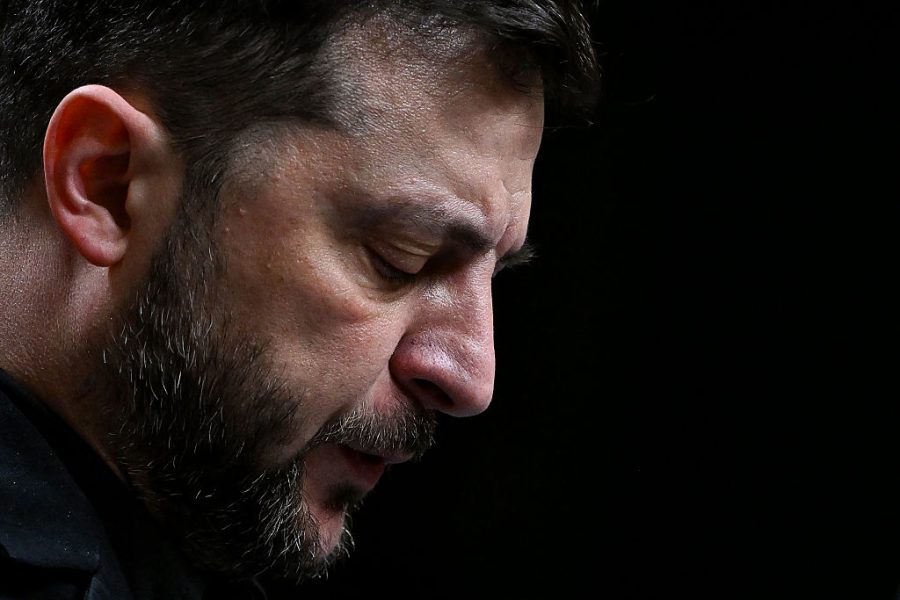US special envoy Steve Witkoff arrived in Russia this morning to meet with Vladimir Putin, as Donald Trump plows ahead with his plan to secure a peace deal in Ukraine by hook or by crook. This is the pair’s fourth meeting in nearly as many months. Putin and Witkoff are expected to discuss Trump’s final proposal for a ceasefire in the conflict, which is believed to include American recognition of Russian control over Crimea, along with all territories occupied by Moscow since February 2022, a ban on Ukraine joining Nato and the lifting of all sanctions imposed on Russia since 2014.
Ukrainian President Volodymyr Zelensky stated earlier this week that he categorically rejected these conditions, pointing out he did not have the power to hand over territory: “There’s nothing to talk about here. This is against our constitution.” According to the Telegraph, the Ukrainians have put forward some amendments to Trump’s plan, including what was essentially a plea for the US not to legally recognize Crimea as Russian, and a warning that to do so would give Moscow a launch pad to not only attack Ukraine again, but target other counties on the Black Sea, such as Turkey or Romania.
Nevertheless, this morning the mayor of Kyiv, Vitaly Klitschko, suggested that Ukraine may have little choice but to give up land. “One of the scenarios is… to give up territory. It’s not fair. But for the peace, temporary peace, maybe it can be a solution, temporary,” he said. Klitschko’s comments come the day after one of the deadliest Russian missile strikes on the Ukrainian capital this year, which has killed at least 12 and injured over 80.
In his meeting with Putin, Witkoff will need to decide whether to raise his boss’s irritation at Russia’s continuing attacks on Ukraine. Just yesterday, Trump posted on his platform Truth Social that he was “not happy with the Russian strikes on KYIV. Not necessary, and very bad timing. Vladimir, STOP!” Were the President to know that his post is being widely mocked on Russian social media by those close to the Kremlin, it would undoubtedly irritate him more.
Zelensky’s refusal to consider handing over Crimea was backed by a number of allies, including France’s Emmanuel Macron and Britain’s Keir Starmer. “It is Ukraine that must decide on those issues – it’s not for other people to decide on behalf of Ukraine,” the Prime Minister said. Nevertheless, in an interview with Time magazine published today, Trump doubled down on his insistence that Ukraine hand over Crimea to Russia. Claiming falsely that Barack Obama handed the territory to Moscow during his presidency, he added: “Crimea will stay with Russia. And Zelensky understands that, and everybody understands that it’s been with them for a long time.”
Since Trump’s return to the White House at the start of the year, Britain and France have moved to fill the growing American-shaped hole in the support being offered to Ukraine. The limits of that support are, however, now being tested. It was reported yesterday that Starmer and Macron’s plan to send a “coalition of the willing” force to oversee any potential truce in Ukraine is at risk of unravelling. Instead of a 10,000 strong fighting force, the watered-down plan could see only military trainers being sent to the country, following concerns that western troops in Ukraine presented a risk that was “too high” and could further provoke Russia.
But as Trump gets closer to forcing Ukraine into agreeing to a deal with Russia that it doesn’t want to sign, Britain and Europe face an increasingly stark choice. Stand by and risk giving Putin the time and tools to come back stronger, or make good on their work and back Ukraine “for as long as it takes.”



